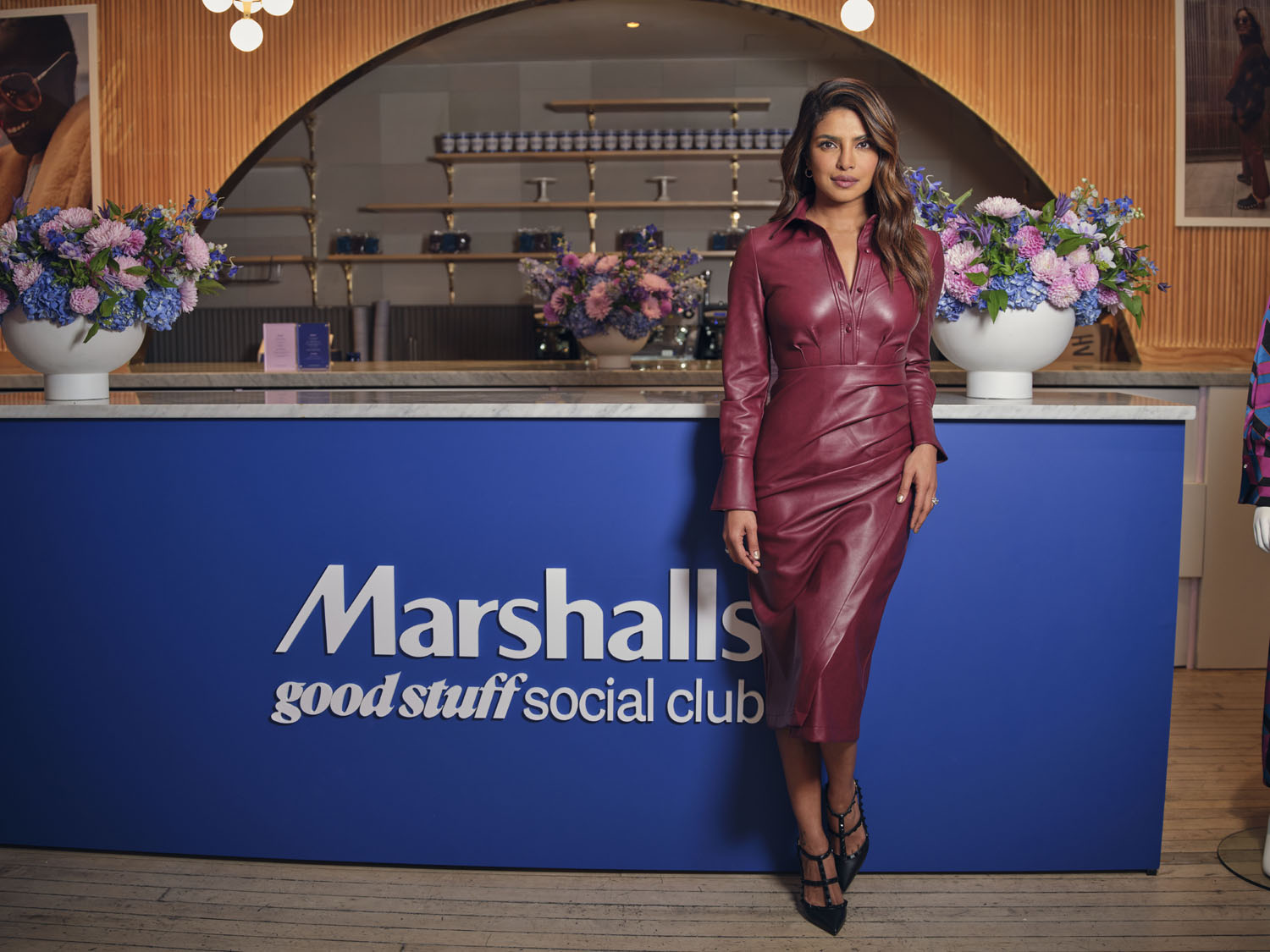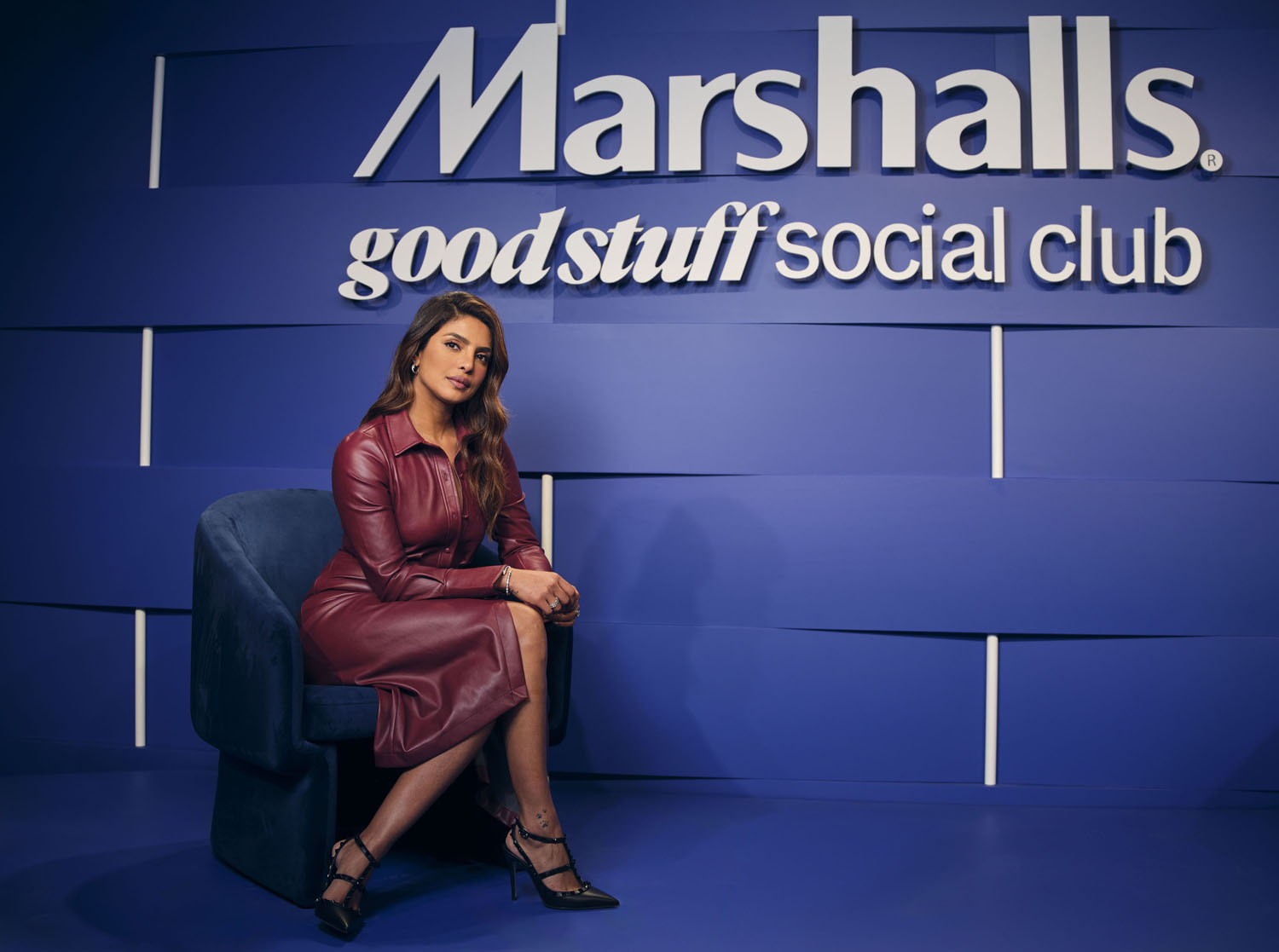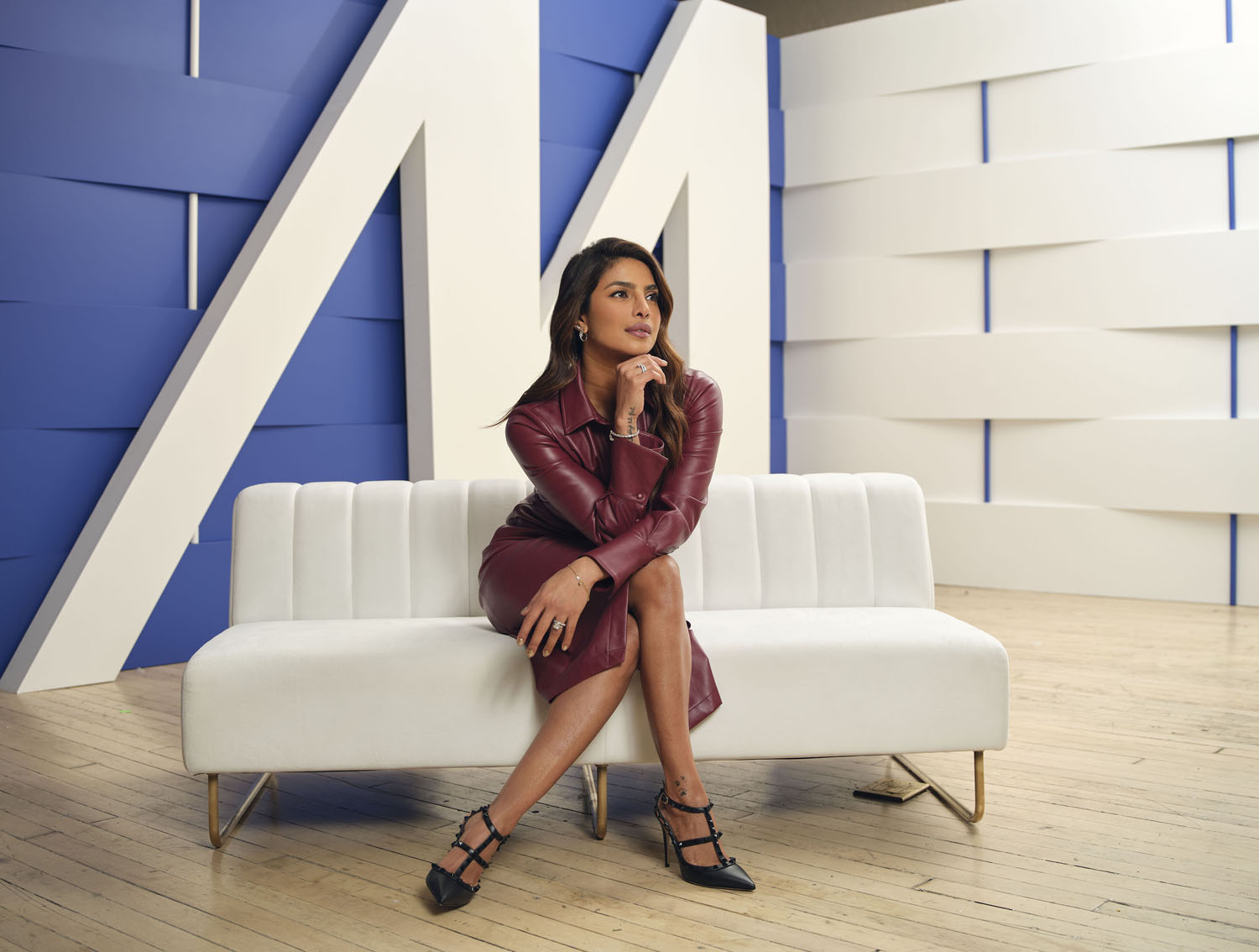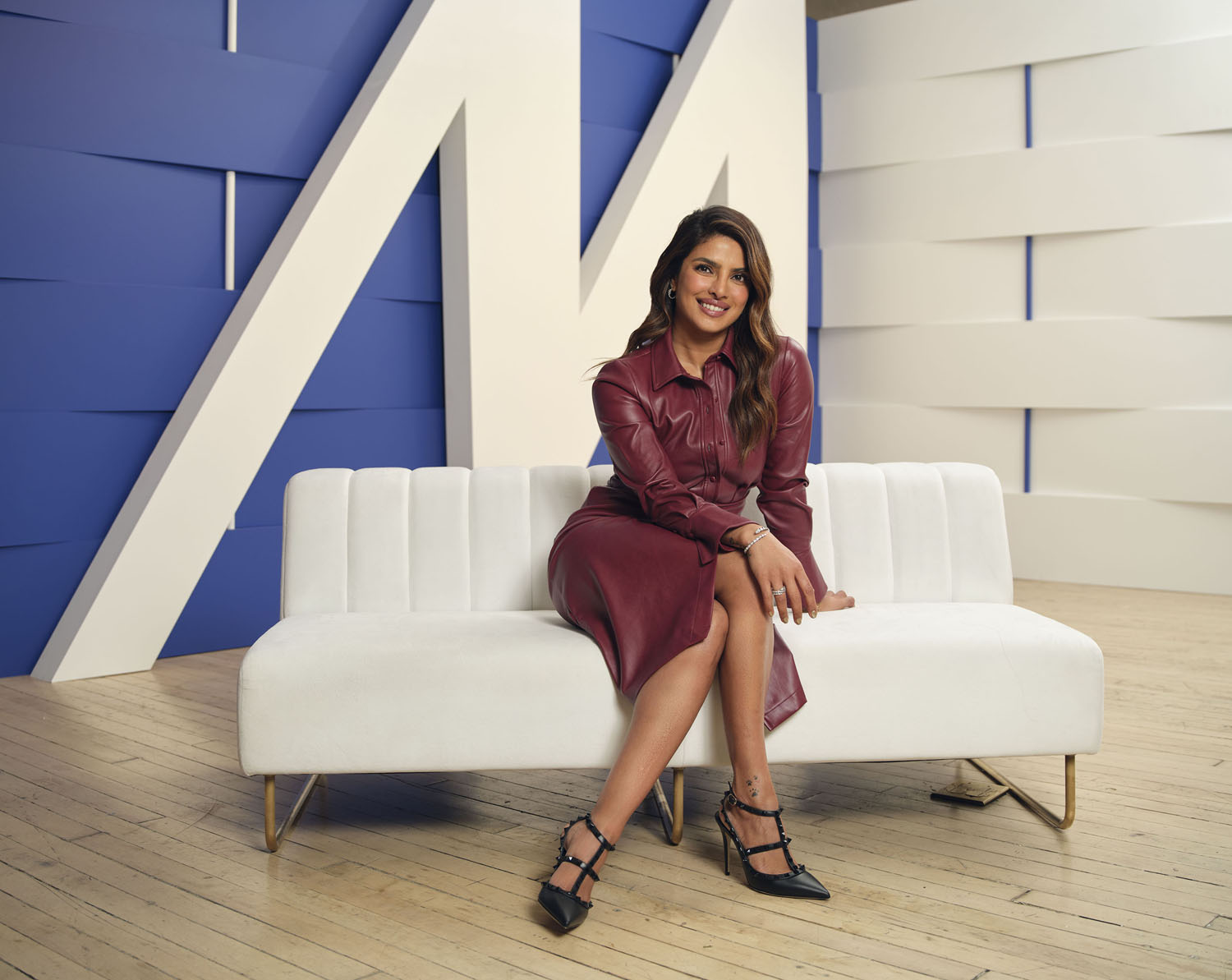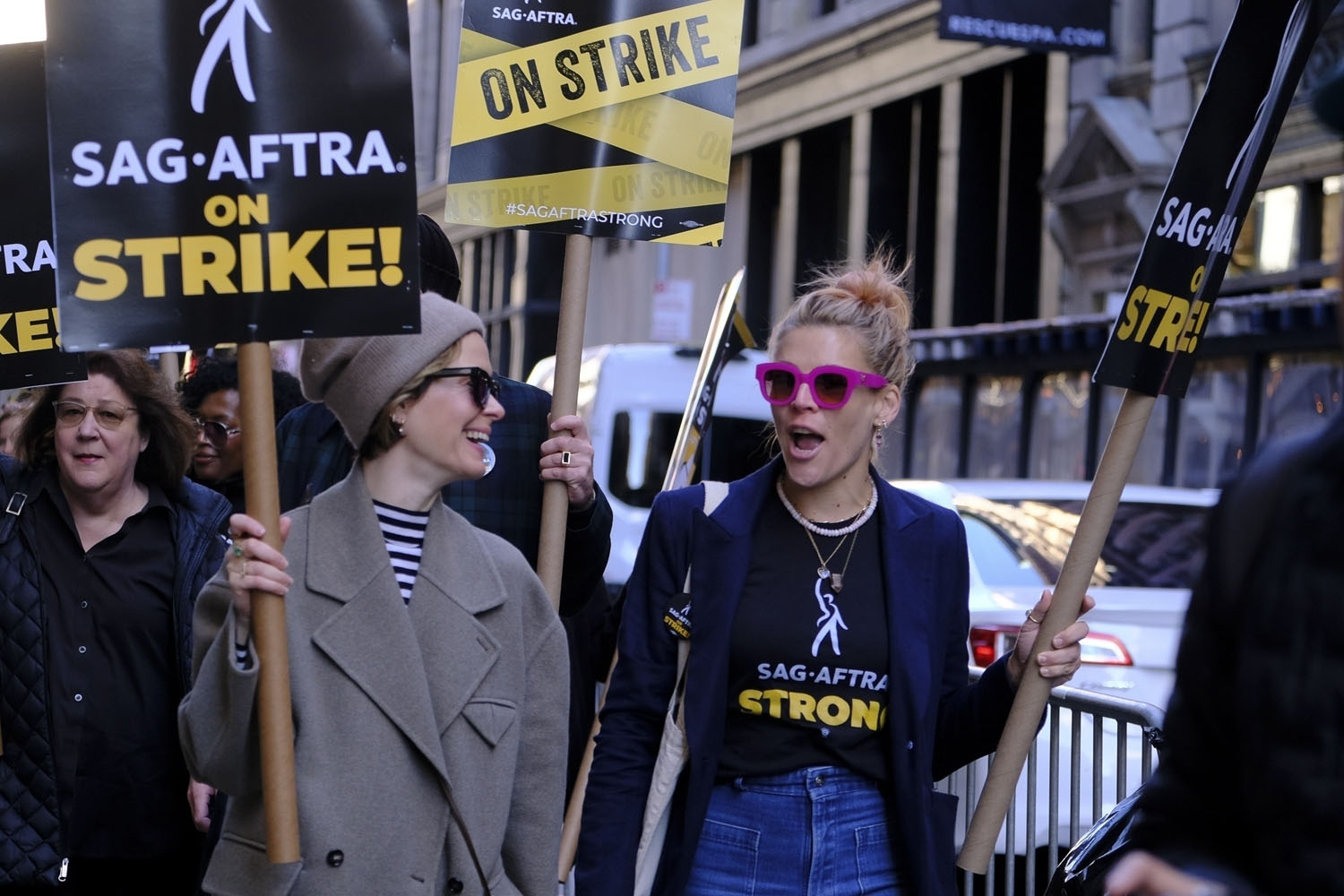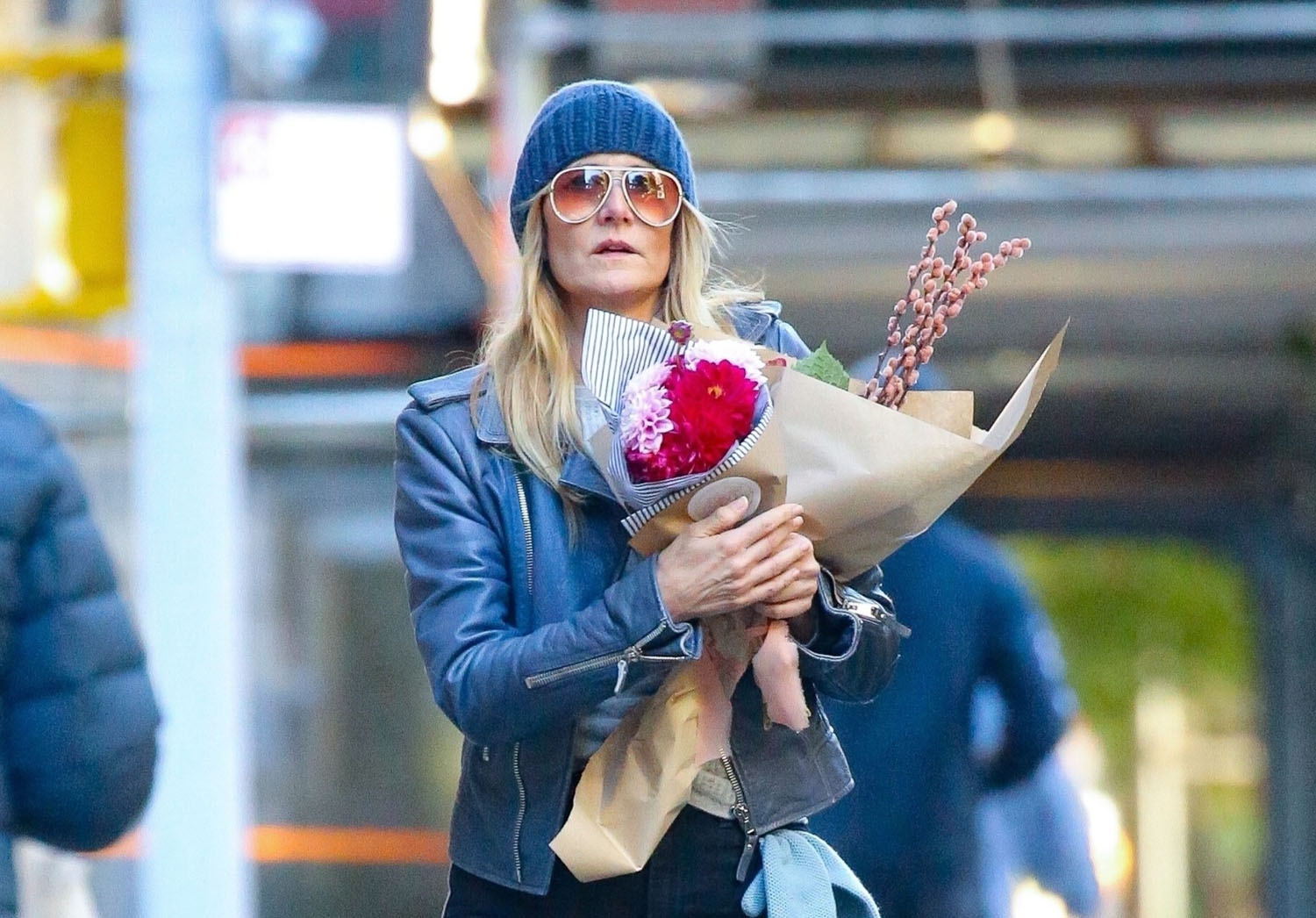Priyanka's impact (on her brand deal)


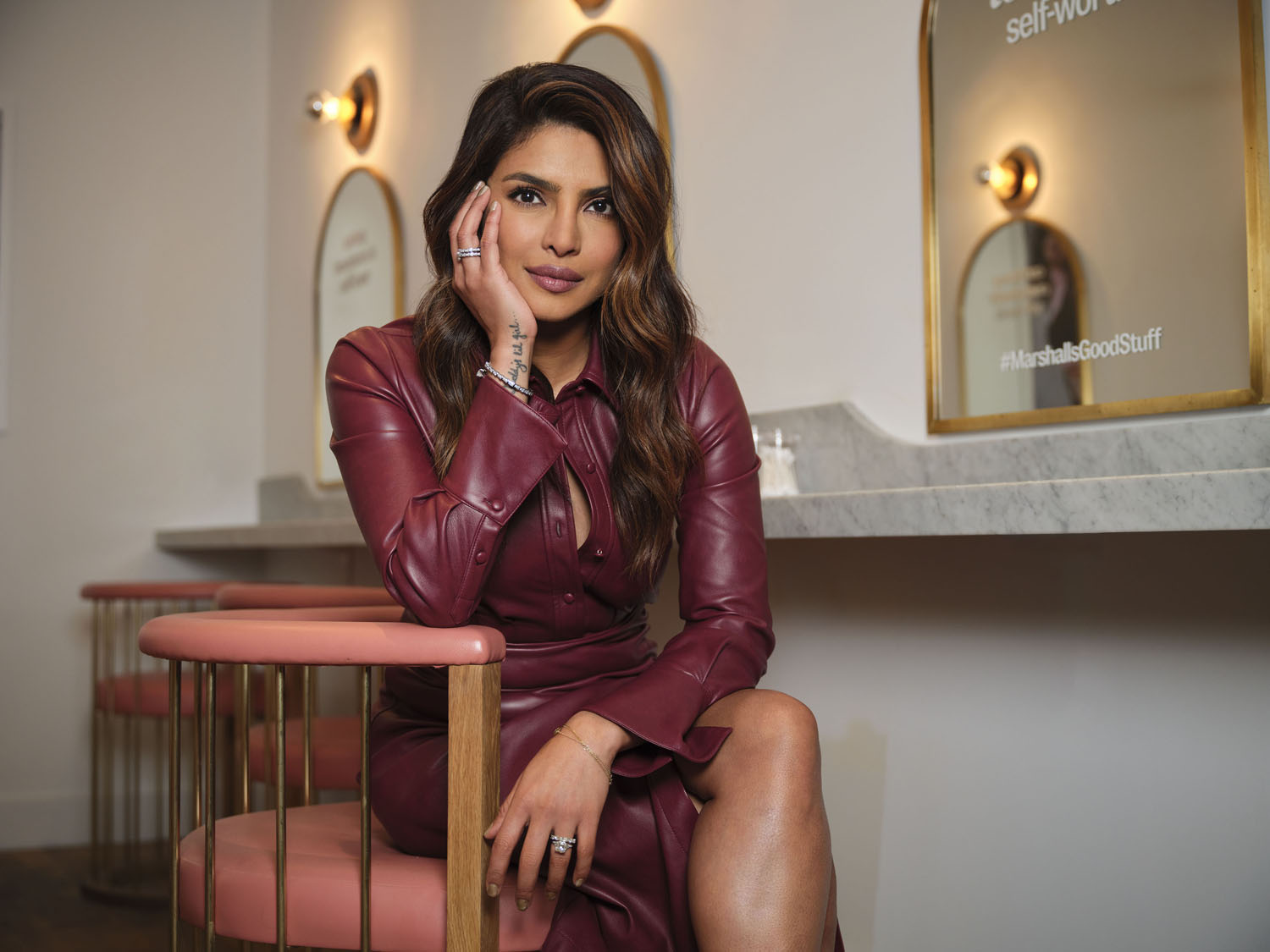
Priyanka Chopra was on Good Morning America yesterday to talk about her recent partnership with Marshalls. The partnership involves Priyanka stepping into the role of women’s empowerment coach, offering advice and insight to members and attendees of the store’s Good Stuff Social Club, a two-day event that took place last weekend in Soho, New York.
The event included a masterclass with Priyanka, called Lessons for Getting the Good Stuff in Life: A Masterclass with Priyanka Chopra Jonas, providing learning and networking opportunities for attendees, along with “innovative programming and curated seasonal fashion displays”, and also featured TV host Keltie Knight, finance expert Vivian Tu and fitness guru Kanoa Greene. But it’s clear that Priyanka, who they label a “powerhouse” is the biggest name attached to the cause.
I’m approaching this brand partnership with the same skepticism I approach all celebrity partnerships. These deals have always screamed “inauthentic” and “all about the money” to me. But there are a few things about this specific partnership that make it less of an ethical dilemma. And considering the nature of the event, what’s included, and how accessible Marshalls is to the average person, I’m cautiously optimistic that this partnership is…different.
Lately, there have been a slew of super problematic partnerships and brand deals, such as Real Housewives of New Jersey star Teresa Giudice and her daughters partnering with Shein, a disgraced (but still very popular) fast fashion brand that’s come under fire for allegedly stealing designs from independent designers, and poor working conditions. When Teresa’s family received a swift backlash on social media over the partnership, a spokesperson for the Giudice’s released this way off the mark statement:
"We 100% believe in ethical practices...and have not seen any substantive evidence definitively showing unethical practices.”
There was also the problematic and confusing launch of Lola, JLo’s new alcoholic line of spritzes. She helped create, brand and market these drinks despite being a famous non-drinker herself. I wrote about that here.
And perhaps most notably, there’s Gwyneth Paltrow, who, through her company, Goop, has been selling us piles of expensive sh-t she’s branded as “wellness”. These products include jade vagina eggs, overpriced vitamins, Body Vibes (?) which are wearable patches that Goop says “promote healing” and “rebalance the energy frequency in our bodies”. Goop sells packs of these patches for $60, which include a pack of 10. The company says wearing the patch reduces inflammation, boosts cell turnover and smoothes out physical tension and anxiety. It’s a bold claim, which they initially said was made possible by…NASA.
The aestheticians behind the patches said the products are made with “the same conductive carbon material NASA uses to line space suits so they can monitor an astronaut’s vitals during wear.” They said the technology used “bio-frequency that resonates with the body's natural energy field.” These claims were ultimately removed from their website and marketing materials when NASA kindly informed journalist Rae Paoletta that it was all “a load of BS.”
All of this is to say that there are a lot of famous people lending their celebrity to brands, products and businesses that are selling ridiculous products out there, and this can cost everyday people like you and me a lot of money.
A year ago around this time, I was in New York for BravoCon, an experience which I documented here. I paid a steep price for everything from the general admission ticket to the drinks and the products in the bazaar, which were all brands owned by the Real Housewives themselves, of course.
Even if I wasn’t tainted by all the crap happening behind the scenes (and also on camera) over at Bravo, when I compare an event like BravoCon to the Good Stuff Social Club, I get the impression I’d leave one with a lot more skill, knowledge and inspiration than I would the other. You can read between the lines.
Sure, Marshalls has likely paid Priyanka a wad of money to attach her name to this initiative. But the fact that in exchange for that payment, you actually have access to her and to what sounds like a very enriching experience is what separates this partnership from the many others we’ve seen like it. And tickets to attend the event were FREE!
"It's not always easy to find a community of women who want to lift each other up and go after what they deserve. I'm thrilled to join so many amazing women as we come together, share what we've learned along the way, and hopefully empower each other to go after every ambition," Priyanka said about the partnership. And though it sounds carefully written and vetted by a PR person, the itinerary says that whoever wrote it was not lying.
Guests were enrolled in the classes on a first come, first serve basis. Priyanka’s masterclass was likely the most in demand, but even the other classes were noteworthy. Keltie Knight and social media personality Isabel Timerman gave advice on how to infuse work and personal life with radical confidence; Vivian Tu gave a class on helping women prepare for a secure financial future and gave tips on how to maximize savings. And though I initially turned my nose up at the fashion masterclass, the course was designed to help women find their individual style and boost confidence. I can imagine the benefits of a class like this for women who struggle to find clothes that fit them the way they’d like them to, or can’t afford to dress a certain way.
All of this emphasizes the importance of context, and not just falling into the trap of associating any given brand with whatever celebrity that company has pockets deep enough to bring on as a partner. Remember when Kendall Jenner solved racism with a can of Pepsi?
Since transitioning into marketing, I’ve come to understand the power of two things – the first is influencer marketing. I totally understand why Pepsi thought they struck gold with that commercial. The second thing, though, is impact marketing. The thing about impact marketing is that it’s believable. It’s genuine, it’s organic, and it can often yield great results without a high spend, unlike influencer marketing, which can cost a pretty penny.
When Pepsi was forced to pull the commercial starring Kendall Jenner, people started questioning just how much that would cost them. According to a PEOPLE article that was published back in 2017 when the commercial aired – the answer is a lot.
“At least $2 million, but probably more like $5 million, including Kendall’s fee,” an official said, adding the media buy would be “roughly $100 million for a campaign like this.”
A longtime production coordinator added: “Kendall was likely paid a one-time fee for the ad. I’d guess anywhere from $400,000-$1 million.”
Do you get why I’m cautious when I see celebrities partnering with brands? Are their hearts in it? Sometimes, yes. But in a lot of cases – it really is about the money. Do they actually use the products they’re swearing by on national TV? Do they even follow the accounts they have paid partnerships with on Instagram? It’s not uncommon for celebrities to show up, do what they’re asked to do and go back to basking in a luxury I will likely never know in my lifetime.
Priyanka, at least in this case, is believable. And the fact that women got to attend this series, and again tickets were free, meet her in person and leave there with something – whether a new business idea through the focus on entrepreneurship, better ways to stretch their dollars, or a confidence boost, that’s enough for me to say that perhaps in this case, it was about a lot more than just the Benjamins.

